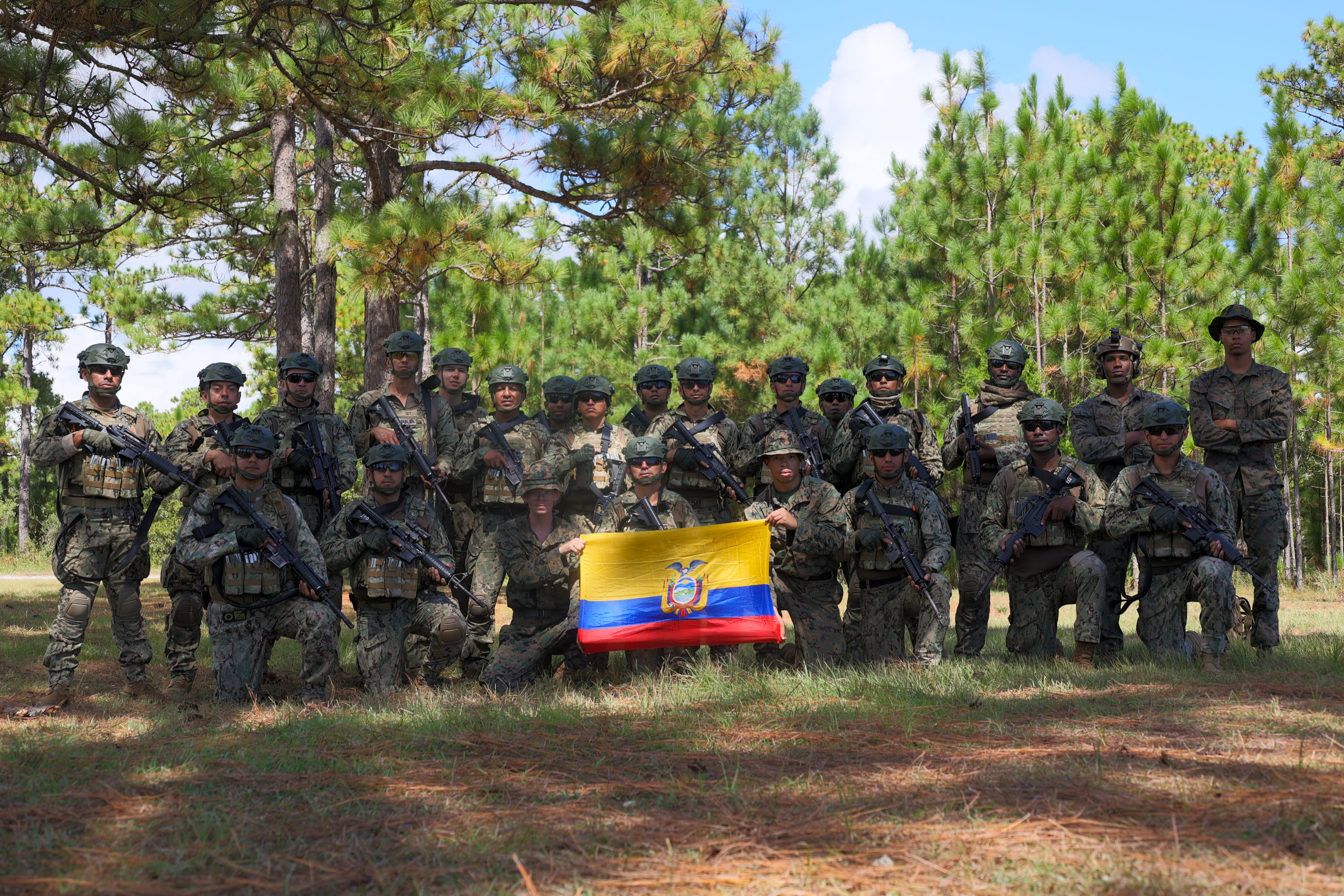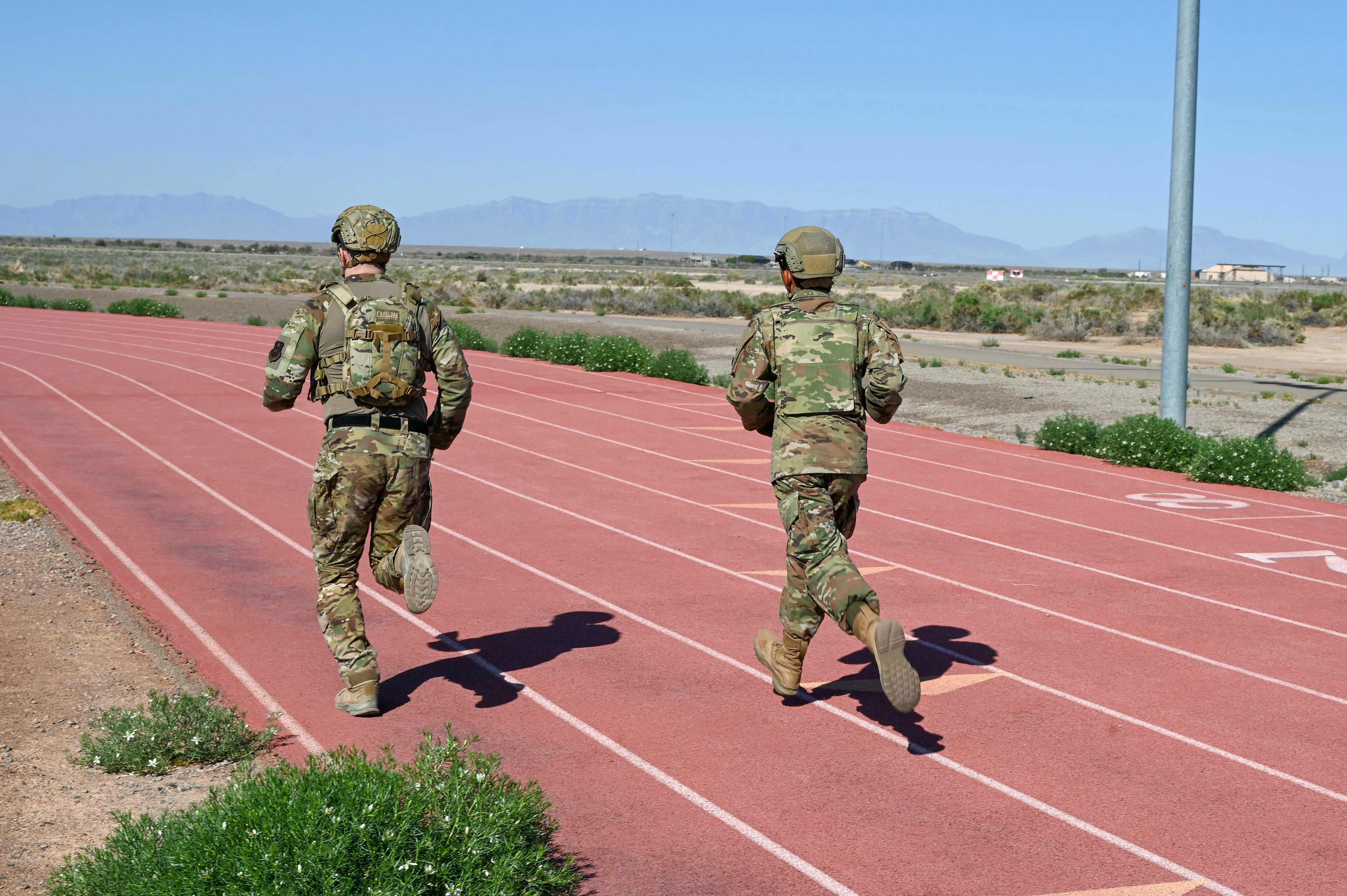Evidence of a proxy war in Libya is being bolstered by a satellite image of U.S.-made military hardware in the North African country. Per TIME, U.S.-made planes are being used to turn the tide of the war and undermine U.S. policy in Libya.
Despite a U.N. embargo barring the transfer of weapons to Libya, at least six U.S.-made Archangel planes appear in a satellite image of the clandestine United Arab Emirates base in al-Khadim, Libya.
The Archangel, made by the North Carolina-based company Iomax USA, is a specialized turboprop plane that can be equipped with surveillance gear and weapons. The plane's low flying altitude is ideal for patrolling borders and fighting insurgents at close range.
Iomax CEO, Ron Howard, confirmed his company's airplanes have been deployed in Libya. "The airplanes have been there, but it wasn't airplanes we sold Libya," he said.
Asked if the aircraft had been sent there by the U.A.E., he said, "I would suspect that that's probably who it is, yeah."
In the country’s capital of Tripoli, Gen. Khalifa Haftar’s Libyan National Army is fighting the U.S.- and U.N.-backed government. Haftar has expanded his international support — Egypt, the U.A.E., and Russia back Haftar’s forces in a military campaign that is framed as a battle against Islamist groups like the Muslim Brotherhood, according to the report in TIME.
Haftar, a rogue figure who was once an ally of former Libyan leader Moammar Gadhafi before participating in a CIA-backed attempt to overthrow him, is blamed by his opponents for the failure of the government brokered by the U.N. in 2015.
Over the past year, Haftar succeeded in gaining control over Benghazi and Libya’s key oil ports. He has expressed his intent to seize control of Tripoli and reunite Libya by force — and overthrowing the government backed by the U.S. and U.N.
Military support for Haftar’s forces complicates efforts to resolve the conflict through negotiations — something that the U.A.E. supports. With both Haftar’s forces and the U.N.-backed government commanding minuscule air forces, the addition of the Archangels could turn the tide of the conflict.
A spokesman for the Libyan National Army denied a U.A.E. military presence in Libya. However, the presence of the base was confirmed by other officials, including Rami al-Obeidi, who served as the intelligence chief for the National Transitional Council, which governed Libya following Gadhafi’s fall.
More than six years after Gadhafi was deposed and killed in the Battle of Sirte, Libya has become a geopolitical war zone for international and regional powers. A constant flow of weapons, despite the arms embargo put in place by the U.N., sustains a conflict that leaves the country in a fractured limbo between rival governments.
Mackenzie Wolf is an editorial intern for Military Times.





